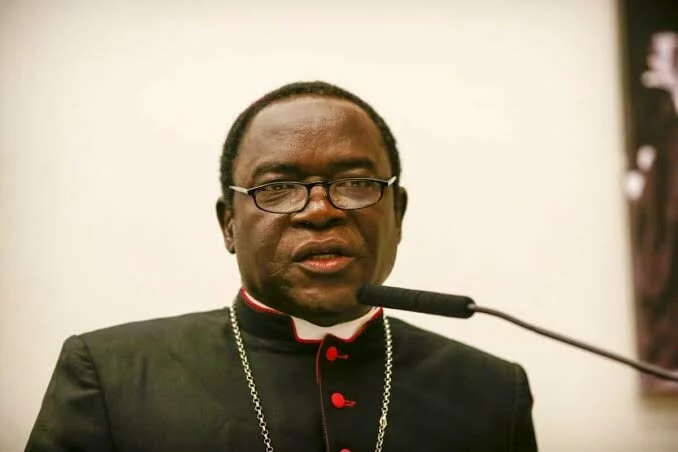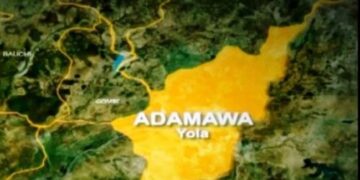Bishop of the Catholic Diocese of Sokoto, Mathew Hassan Kukah, alongside a coalition of prominent Nigerians, has cautioned that the ongoing dispute between the Dangote Refinery and the Petroleum and Natural Gas Senior Staff Association of Nigeria (PENGASSAN) could undermine investor confidence and derail efforts to revive Nigeria’s domestic refining capacity.
In a joint statement issued on Tuesday, the group, which includes 12 other eminent Nigerians acknowledged that government mediation and renewed dialogue had helped to de-escalate the crisis but warned that such industrial conflicts risk sending negative signals to both domestic and foreign investors.
“We, the undersigned, note with concern the recent disputes and disruptions surrounding the Dangote Refinery. Although the immediate crisis has been de-escalated through government mediation and renewed dialogue between labour and management, the episode raises important lessons for Nigeria’s economic future,” the statement read in part.
The group noted that for decades, Nigeria suffered from the collapse of government-owned refineries, the waste of public funds through fuel subsidies, and dependence on imports, challenges that left citizens exposed to scarcity, inflation, and insecurity.
“In this context, the Dangote Refinery represents more than a private venture; it is a national symbol of what bold domestic investment can achieve,” they stated.
According to the group, the refinery has already begun to ease supply pressures, with petrol prices reportedly dropping from ₦1,500 per litre to about ₦820, a 55% reduction in some areas, an improvement that has positively impacted transport and food prices.
“This impact on transport costs and food prices offers Nigerians a glimpse of how local productivity can improve daily life. It also signals to investors at home and abroad that industry, rather than speculation, can still thrive in Nigeria,” they added.
However, they warned that strikes and threats accompanying such industrial transitions could discourage much-needed investment.
“Industrial disputes, if not carefully managed, risk discouraging both domestic and foreign investment at a time when Nigeria most needs capital and innovation. A refinery of this scale is a national lifeline, with profound consequences for jobs, energy security, and inflation.”
The statement was co-signed by notable figures including educationist Abubakar Siddique Mohammed, activist Aisha Yesufu, economist Arunma Oteh, investment banker Atedo Peterside, ECOWAS Commissioner for Political Affairs, Peace and Security, Dr. Salamatu Hussaini Suleiman, and others such as Labour Party National Women Leader Dudu Mamman Manuga, Ibrahim Dahiru Waziri, Khalifa Muhammad Sanusi II (16th Emir of Kano), Obonganwan Barbara Etim James, Opeyemi Adamolekun, Osita Chidoka, and Senator Sola Akinyede.
The group called for a balanced approach that protects workers’ rights, ensures market stability, and promotes corporate accountability.
“Workers’ rights must be respected. The Constitution guarantees the right to organise and to demand fair treatment. No enterprise can succeed without motivated, fairly treated workers,” they said.
“Markets and productivity must be protected. The right to organise cannot become a licence to hold the economy hostage. Productive enterprises that lower costs and create jobs must be safeguarded.”
“Social responsibility and accountability must remain central. Investors of this magnitude must operate transparently, uphold fair labour practices, and reinvest in the communities they serve.”
LEADERSHIP reports that the warning came amid recent industrial action by PENGASSAN, which shut down critical oil and gas facilities over claims that the Dangote Refinery dismissed 800 workers who joined the union.
While the refinery denied the figure, insisting that only a few workers involved in acts of sabotage were affected as part of an internal reorganisation, the strike led to fuel shortages, losses in oil and gas output, and a drop in power generation nationwide.
The dispute was resolved following Federal Government intervention, with PENGASSAN suspending its strike after the Dangote Group agreed to redeploy affected workers to other business units.
Despite the truce, the price of cooking gas remains high, averaging ₦2,000 per kilogram in Lagos and other major cities as of Monday, far above the pre-dispute price of about ₦900 per kilogram.





